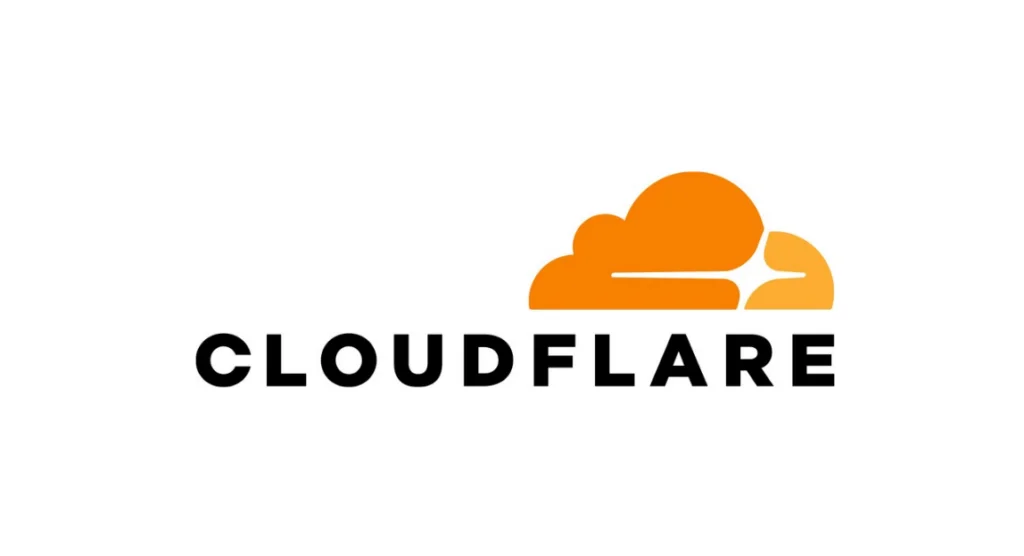Insider Brief
- Quantum tokens leverage the no-cloning theorem to potentially prevent forgery, enable local validation for faster and more resilient transactions, and preserve user privacy.
- With applications spanning finance, IoT, and critical infrastructure, quantum tokens signal a transformative approach to digital security, blending quantum and classical systems for unprecedented protection.
- Quantum tokens, demonstrated by Quantinuum, Mitsui and NEC over a 10-kilometer quantum network, offer a secure and private way to authenticate digital transactions using quantum mechanics.
Amid escalating cyber threats and a growing demand for faster, more efficient global financial systems, quantum tokens are now emerging from a theoretical idea and scientific curiosity into a real technological approach to faster, more secure digital transactions.
A recent advance in quantum token technology demonstrated by Quantinuum, in collaboration with Japan’s Mitsui and NEC, across a 10-kilometer quantum network, signals a potential revolution in digital asset protection is brewing, one that could offer solutions to key security issues that existing technologies struggle to address.
But what are quantum tokens, exactly?

Understanding Quantum Tokens
According to a white paper on the Quantinuum-Mitsui-NEC quantum token experiment, quantum tokens could lead to a new era of security in everything from financial markets to IoT networks by blending quantum and classical systems to achieve the trifecta of security: unforgeability, rapid validation and privacy.
It may be helpful for a little history lesson into the theoretical precursor of these quantum tokens – usually referred to as quantum money. Like so many of today’s quantum technologies that are emerging so swiftly these days, the scientific legacy of quantum tokens may be much older – and its need may be much deeper – than most think.
In fact, we might be able to trace back the need for quantum tokens to the creation of paper money – more than 1,000 years ago. Since the invention of paper money, counterfeiters have produced highly convincing fake bills, prompting banks to wrestle with ways to stop counterfeiting by adopting advanced security features over the years like watermarks and holograms.
But to achieve truly counterfeit-proof money, quantum physicists have proposed “quantum money” based on principles from quantum physics. The concept leverages the no-cloning theorem, which makes it impossible to replicate a quantum state precisely.
The no-cloning theorem, a cornerstone of quantum mechanics, states that an unknown quantum state cannot be copied without altering its original form. This principle arises from the unique properties of quantum systems, where observing or measuring a state inherently changes it. For quantum money, this means each “note” would have a unique quantum signature, making duplication fundamentally impossible and providing unmatched security against counterfeiting.
Building on that, visionary physicist Stephen Wiesner first suggested – starting in the late 1960s – embedding polarized photons in banknotes to create unique, unforgeable markers. The idea was later championed by Charlie Bennett and Gilles Brassard, who turned the idea into a pioneering scheme for quantum key distribution (QKD), a technology that leverages quantum mechanics to create and distribute encryption keys with unmatched security, now referred to as BB84 in 1984.
This approach could allow, for the sake of an example, banks to verify each note by cross-referencing photon properties, making copying virtually impossible.
At their core, then, quantum tokens are unique digital identifiers that can be securely issued, transferred, and redeemed without requiring central validation, according to the Quantinuum white paper on the advance. Unlike traditional digital tokens, which often rely on complex encryption alone, quantum tokens, relying on those laws of quantum physics, can prevent forgery and enable secure, autonomous validation.
Here’s how they address the core pillars of secure digital transactions:
- Unforgeability: In digital finance, the risk of counterfeiting or double spending is a persistent challenge. Quantum tokens address this with a fundamental law of quantum physics known as the “no-cloning theorem,” which ensures that quantum states cannot be duplicated. This property makes it impossible for a token to be copied, adding an inherent layer of security that existing digital systems cannot replicate.
- Local Validation: Most digital transaction systems require users to validate transactions with a central server, often causing delays and creating a vulnerability if that central point fails. With quantum tokens, however, validation can occur locally, meaning transactions are authenticated on the spot without communication with a central authority. This feature not only reduces latency but also enhances system resilience by eliminating single points of failure.
- Privacy: Quantum tokens allow users to retain their anonymity until the moment of redemption, similar to cash transactions in the physical world. Unlike traditional digital systems, where user data may be accessible to multiple intermediaries, quantum tokens secure user information, revealing it only when the token is spent.

A Historic Proof of Concept
Over the decades, quantum money faced technological hurdles that shelved quantum money to an intellectual curiosity. However, dramatic strides in quantum computing and quantum communication have moved quantum money and quantum tokens from the theoretical to possible.
Quantinuum, Mitsui, and NEC’s recent demonstration of quantum tokens represents a significant step forward in the creation of this system. Using commercial QKD hardware, they transmitted quantum tokens over a 10-kilometer network, issued them to users, and then converted the tokens into digital data for easy storage and redemption. This approach means that the tokens can function across classical digital networks without needing quantum-specific hardware for storage.
The demonstration bridged a crucial gap, showing that quantum tokens could be issued and validated on conventional infrastructure while still leveraging quantum mechanics for core security properties. By sidestepping the need for quantum memory—a challenging and costly technology still in its infancy—the team achieved a practical deployment of quantum-enhanced security without overly complex requirements.
Potential Industry Applications
Quantum tokens, though still in their early stages, have broad applications across industries that require high security and efficient validation processes. A whole new spectrum of use cases open up with this experiment – Here are several of those promising use cases:
- Stock Exchanges: Financial markets rely on split-second transaction speeds to secure trades. Current systems require communication with a central server for validation, introducing delays. Quantum tokens, with local validation capabilities, enable transactions to be authenticated instantly at the trading site, eliminating the need for a central authority and enhancing both speed and privacy in high-stakes environments.
- Commodity-Backed Tokens: Tokens representing physical assets—such as precious metals or foreign currencies—often face risks of forgery. Quantum tokens provide a solution by ensuring each token is uncopyable and uniquely bound to a transaction, thus preventing duplication. Central authorities can issue commodity-backed tokens with confidence, knowing that they cannot be counterfeited, while users benefit from enhanced privacy and security.
- Data Backup and Disaster Recovery: For critical infrastructure, such as hospitals and data centers, rapid data recovery following a system failure is essential. Quantum tokens enable secure, fast access to backup locations through local validation, allowing data recovery efforts to continue even when network connectivity is compromised. This approach could make disaster recovery processes faster and more secure by bypassing the need for external validation, streamlining access in high-stakes situations.
- Internet of Things (IoT): Quantum tokens could be transformative in IoT networks, where devices often rely on cloud servers for authentication, which introduces delays and increases vulnerability to interference. By enabling local authentication, quantum tokens enhance the reliability and security of IoT devices, reducing latency and minimizing the risk of data leaks or breaches. This feature is especially valuable in autonomous environments, like smart cities or industrial IoT, where devices must interact seamlessly without human oversight.
- Secure Communications in Business: In situations where businesses or entities do not have established trust relationships, ensuring secure communication is critical. Quantum tokens provide a unique trustless security layer that protects sensitive data while minimizing the need for third-party involvement, reducing risks associated with data leaks and maintaining data integrity.
Scaling Quantum Tokens
To achieve commercialization, quantum tokens systems will need to scale for widespread use, which would not be without challenges. Deploying QKD technology across extensive networks requires substantial investment, as well as technical expertise to integrate quantum and classical systems smoothly. Additionally, the specialized infrastructure needed for QKD – such as fiber optic cables – may limit deployment in less connected areas. Industries will need time and resources to adapt to the specific requirements of quantum tokens, though proponents could easily argue that the security benefits justify the cost.
The long-term prospects of quantum tokens are positive, according to the white paper, especially in industries where security is paramount. A quantum tokens system may also emerge naturally as more businesses and governments prioritize cybersecurity demand for advanced solutions like quantum tokens.
Quantum tokens also represent a new use case for QKD. Rather than just being used simply as a way to send messages securely – as important as this is – quantum tokens enable practical applications such as authentication, digital signatures, and secure access to resources. These tokens leverage quantum properties to verify identity or grant access in ways that are impossible to forge or duplicate, showcasing QKD’s potential beyond secure communication.
Quantinuum and its partners already see applications emerging in sectors such as finance, government, and critical infrastructure, and they plan to continue developing and refining the technology, the paper indicates.
Future Directions
As quantum technology advances, so too could the functionality of quantum tokens. For instance, the eventual development of quantum memory could allow tokens to store more complex data, potentially expanding their use in sectors such as logistics and health care, where secure data handling is crucial. For now, the recent demonstration by Quantinuum, Mitsui, and NEC provides a practical example of how quantum tokens can operate within current technological limits, proving that secure and private digital transactions can be achieved using a blend of quantum and classical methods.
In the coming years, as industries and governments explore quantum-enhanced security, quantum tokens may evolve into a widely adopted standard. The technology’s inherent protection against forgery, capability for local validation, and privacy-preserving properties make it an attractive option for sectors that demand the highest levels of security.
Quantum tokens represent a significant shift in how digital security could be approached, blending physics with existing digital infrastructure to deliver a next-generation solution for secure transactions. The recent demonstration by Quantinuum, Mitsui, and NEC are the first steps to show that it’s possible to create a robust, privacy-focused, and forgery-resistant system for digital transactions—work that could redefine how we think about digital security in the years to come. As organizations assess the risks posed by future cyber threats, quantum tokens may provide an essential tool for securing the digital assets that are integral to modern society.















